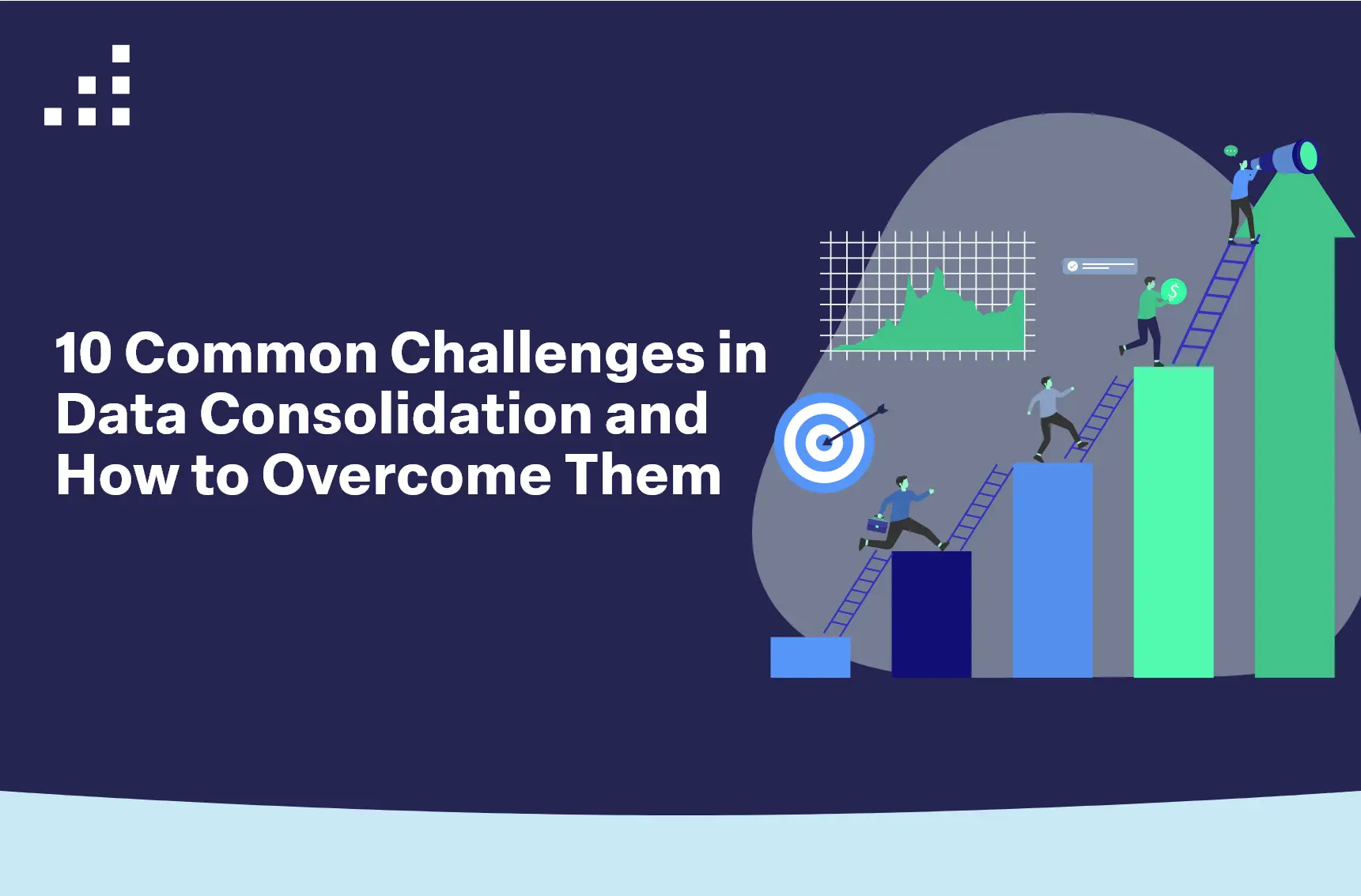Collecting data from finance, operations, marketing, and customer systems is easier than ever—but consolidating that data into a single, reliable source of truth remains a major challenge.
Understanding the challenges in data consolidation is the first step toward resolving them and unlocking the full value of your information.
Why Data Consolidation Matters
Data consolidation means integrating and centralizing information from various sources to create a unified, accurate view of business performance. Without it, teams face fragmented insights, manual reporting, and decision-making blind spots. Effective data consolidation empowers businesses to gain real-time, accurate insights, improve reporting speed and reliability, eliminate duplicate efforts and manual errors, foster better collaboration across departments, and enable confident, data-driven decisions. But getting there isn’t always easy.
In this article, we’ll explore:
10 Common Challenges in Data Consolidation (and How to Solve Them)
How BUCS Analytics Helps Overcome Data Consolidation Challenges
10 Common Challenges in Data Consolidation (and How to Solve Them)
1
Disconnected Systems and Data Silos
Many businesses rely on multiple, disconnected platforms that don’t communicate well.
Solution: Use tools like BUCS Analytics to integrate financial, operational, and customer data into one centralized platform.
2
Inconsistent Data Formats
Different platforms often structure data differently, causing compatibility issues.
Solution: Implement data transformation and standardization processes as part of your consolidation strategy.
3
Manual Data Consolidation Processes
Relying on spreadsheets and manual exports is a major challenge in data consolidation, not to mention they are time-consuming and error-prone.
Solution: Automate consolidation and reporting with platforms like BUCS to ensure accuracy and efficiency.
4
Lack of Real-Time Data
Static, outdated reports lead to missed opportunities and poor decisions.
Solution: Use real-time analytics and automated reporting to access the latest, most reliable insights.
5
Data Quality and Accuracy Issues
Duplicate records, missing data, or inconsistencies undermine reporting.
Solution: Deploy automated data quality checks and processes to validate and cleanse your consolidated data.
6
Limited Data Governance
Without clear ownership and controls, data becomes unreliable and insecure.
Solution: Establish robust data governance policies, and use platforms with role-based access controls—like BUCS—to protect your information.
7
Resource and Expertise Gaps
A common challenge building in-house data consolidation solutions is the pre-requisite specialized skills.
Solution: Leverage user-friendly, scalable platforms that simplify integration and reporting for non-technical teams.
8
High Costs of Custom Integration
Custom development and ongoing maintenance can be expensive.
Solution: Choose pre-built, scalable solutions like BUCS that integrate with your existing tech stack without major custom work.
9
Incomplete Visibility Across Departments
Siloed data prevents leaders from seeing the full picture.
Solution: Centralize your data in one platform to provide comprehensive, cross-departmental insights.
10
Slow Reporting Cycles
Delayed reports make it hard to respond to changes and opportunities.
Solution: Automate report generation to speed up decision-making and stay ahead of the competition.
How BUCS Analytics Helps Overcome Data Consolidation Challenges
BUCS Analytics simplifies the entire data consolidation process, providing a scalable, reliable solution for businesses struggling with fragmented data.
With BUCS, you can:
✅ Centralize Financial, Operational, and Customer Data
BUCS allows businesses to bring all critical data sources into one platform, eliminating silos and providing a single source of truth. This centralization fosters collaboration between departments and ensures leadership has consistent, organization-wide visibility into performance metrics.
✅ Automate Reporting and Eliminate Manual Errors
Manual reporting is tedious and prone to mistakes. BUCS automates the entire reporting process, providing accurate, real-time outputs while freeing your teams to focus on analysis and strategy—not spreadsheets.
✅ Ensure Real-Time, Accurate Insights
With BUCS, businesses gain access to up-to-date, trustworthy data through real-time analytics and automated reports. Leaders can make confident, data-driven decisions quickly, based on the latest information. Eliminate challenges in data consolidation with BUCS.
✅ Strengthen Data Governance and Access Controls
BUCS offers robust role-based permissions and secure access settings to protect sensitive information. This strengthens compliance, reduces the risk of data breaches, and ensures that only authorized users interact with critical datasets.
✅ Simplify Integration Without Complex Development
Unlike many platforms that require costly, time-intensive custom development, BUCS integrates seamlessly with your existing technology stack. Its scalable, user-friendly framework enables rapid deployment without draining internal resources.
BUCS Analytics helps businesses overcome the most common challenges in data consolidation and turn fragmented information into actionable insights. Learn More at BUCS Analytics
